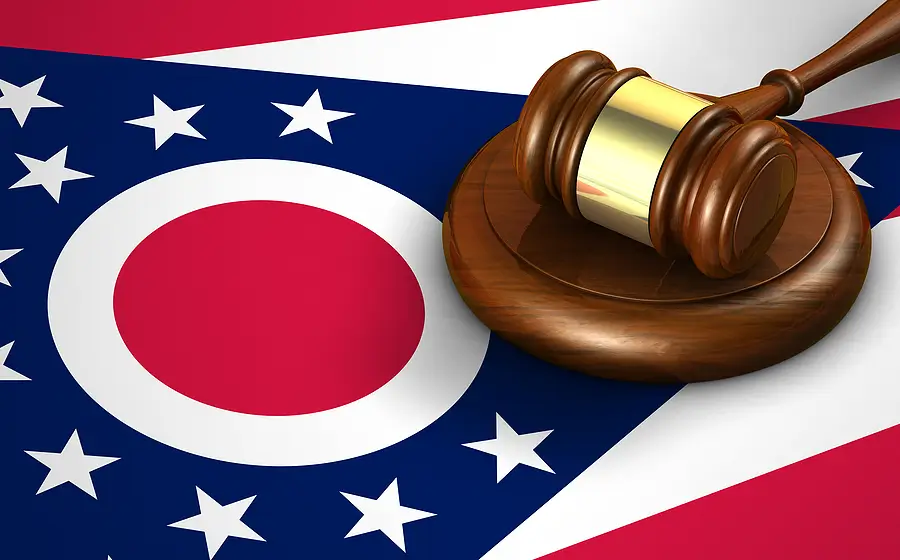Managing rental properties in Ohio is like playing chess. You need strategy, foresight, and knowledge of the rules to stay ahead.
Knowing the top Ohio rental laws every Dayton landlord must understand is critical for a winning game.
Whether you're a seasoned investor or just starting, these laws protect your rental income, safeguard tenant relationships, and keep you out of legal trouble.
Understanding Ohio Landlord Tenant Law
Ohio landlord-tenant law establishes the framework for your rental business. It governs everything from lease terms to tenant rights, ensuring you can manage rental properties effectively while protecting your investments.
This law sets clear boundaries in the landlord-tenant relationship, minimizing disputes when adhered to properly.
Essentials of a Written Lease Agreement
A well-crafted lease agreement is your playbook. Ohio law allows written and oral agreements, but a written rental agreement is vital.
It protects both parties and outlines important details such as rental payments, security deposits, and the duration of the lease.
A written lease agreement provides clarity, ensuring tenants understand their obligations and landlords have a legal foothold if things go south.
Tenant Rights and Responsibilities
Tenants in Ohio have significant rights under state laws. They're entitled to safe and habitable residential premises, access to essential utilities, and protection from housing discrimination under the Fair Housing Act.
However, tenants also have responsibilities, such as maintaining plumbing fixtures and paying rent on time. Enforcing tenant obligations creates a harmonious living environment for all residents.
Landlord Responsibilities and Rights
Ohio landlords have critical responsibilities under the law. You must provide a rental unit that complies with safety codes, make necessary repairs reasonably, and ensure the property has working smoke detectors.
At the same time, landlords have rights, such as filing an eviction complaint in cases of unpaid rent or significant lease violations. When landlords fail to meet their legal responsibilities, tenants may seek remedies, including withholding rent or taking legal action.
Following state laws keeps you from being held responsible for legal issues.
The Role of Security Deposits and Rental Payments
Security deposits and rental payments are the backbone of your rental income. Ohio law requires landlords to return a security deposit within 30 days of a tenant moving out, provided the tenant meets their obligations and leaves a forwarding address.
Meanwhile, clear policies on rental payments, including handling past due rent and addressing non-payment, ensure financial stability and reduce cash flow interruptions.
Navigating the Eviction Process
The eviction process in Ohio is straightforward but requires careful attention to legal steps. If a tenant fails to adhere to lease terms, such as failing to pay rent, you can serve a written notice.
After the appropriate waiting period, you can file for an eviction action in county court. Following the Ohio Revised Code protects your rights as a landlord and expedites legal remedies.
Avoiding Legal Pitfalls
To avoid legal actions against you, stay proactive. Regular maintenance, clear communication, and knowledge of landlord-tenant law are your best safeguards.
For instance, failure to comply with safety codes or ignoring necessary repairs can affect tenant safety and result in costly lawsuits.
Seek legal assistance when unsure, and use written documentation to protect yourself.
Sealing Success: Master Ohio Rental Laws with Confidence
Understanding Ohio rental laws isn't just about compliance; it's about thriving as an investor. Mastering the rules strengthens the landlord-tenant relationship, preserves your rental property, and maximizes rental income.
Don't wait until an issue arises. Familiarize yourself with the top Ohio rental laws every Dayton landlord must know to safeguard your real estate empire.
Partnering with professionals can make all the difference for those looking to simplify property management.
Bridge Stream Property Management provides experienced support tailored to your needs, ensuring compliance and maximizing your returns. Learn more at Bridge Stream Property Management and some of our offerings that include specialized HOA property management services.
Other Resources:
A Landlord’s Guide to Legal Compliance for Multi-Family Properties in Dayton
Eviction Protection Plans for Your Rental Properties in Dayton, OH


